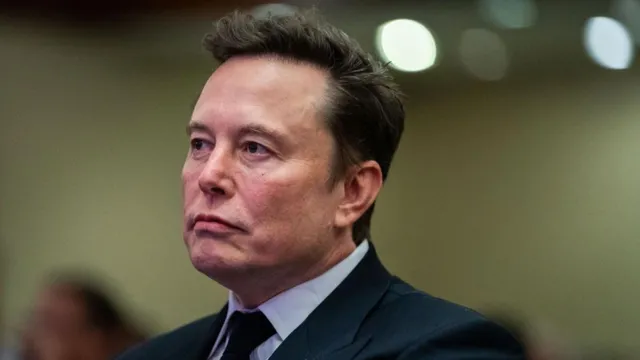Tesla chief executive Elon Musk’s record-breaking $56bn (£47bn) pay award will not be reinstated, a judge has ruled.
The decision in the Delaware court comes after months of legal wrangling and despite it being approved by shareholders and directors in the summer.
Judge Kathaleen McCormick upheld her previous decision from January, in which she argued that board members were too heavily influenced by Mr Musk.
Reacting to the ruling, Mr Musk wrote on X: “[S]hareholders should control company votes, not judges.”
Tesla vowed to appeal the ruling, saying the decision was “wrong”.
“This ruling, if not overturned, means that judges and plaintiffs’ lawyers run Delaware companies rather than their rightful owners – the shareholders,” the company said in a post on X.
Judge McCormick said the pay package would have been the largest ever for the boss of a listed company.
Tesla failed to prove the pay package, which dates back to 2018, was fair, she said.
A shareholder vote on the payment passed by 75% in June, but the judge did not agree the pay should be so large despite what she called Tesla’s lawyers’ “creative” arguments.
“Even if a stockholder vote could have a ratifying effect, it could not do so here,” she wrote in her opinion.
The judge also ruled the Tesla shareholder who brought the case against Tesla and Mr Musk should receive $345m in fees but not the $5.6bn in Tesla shares they asked for.
Some observers said a ruling in favour of Mr Musk and Tesla would have dealt a blow to conflict of interest laws in Delaware.
“The idea of conflict rules is to protect all investors” not just minority investors, said Charles Elson of the University of Delaware’s Weinberg Center for Corporate Governance.
Mr Elson said Judge McCormick’s opinion was well-reasoned.
“You had a board that wasn’t independent, a process that was dominated by the chief executive, and a package that was way out of any sort of reasonable bounds,” he said. “It’s quite a combo.”
Mr Elson said he expects Tesla might try to reconstitute a similar pay package in Texas where the company moved its legal base earlier this year after the pay ruling.





